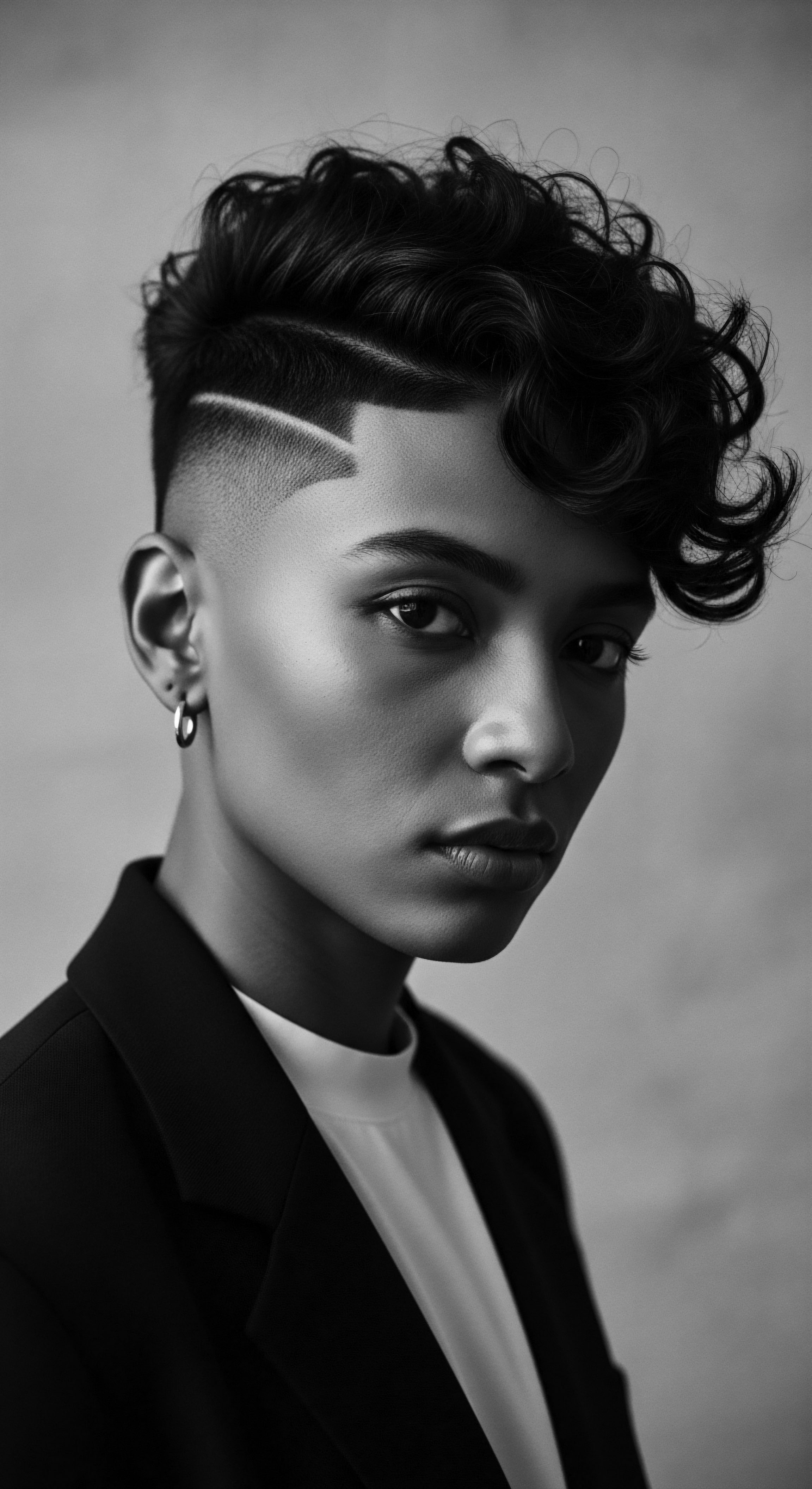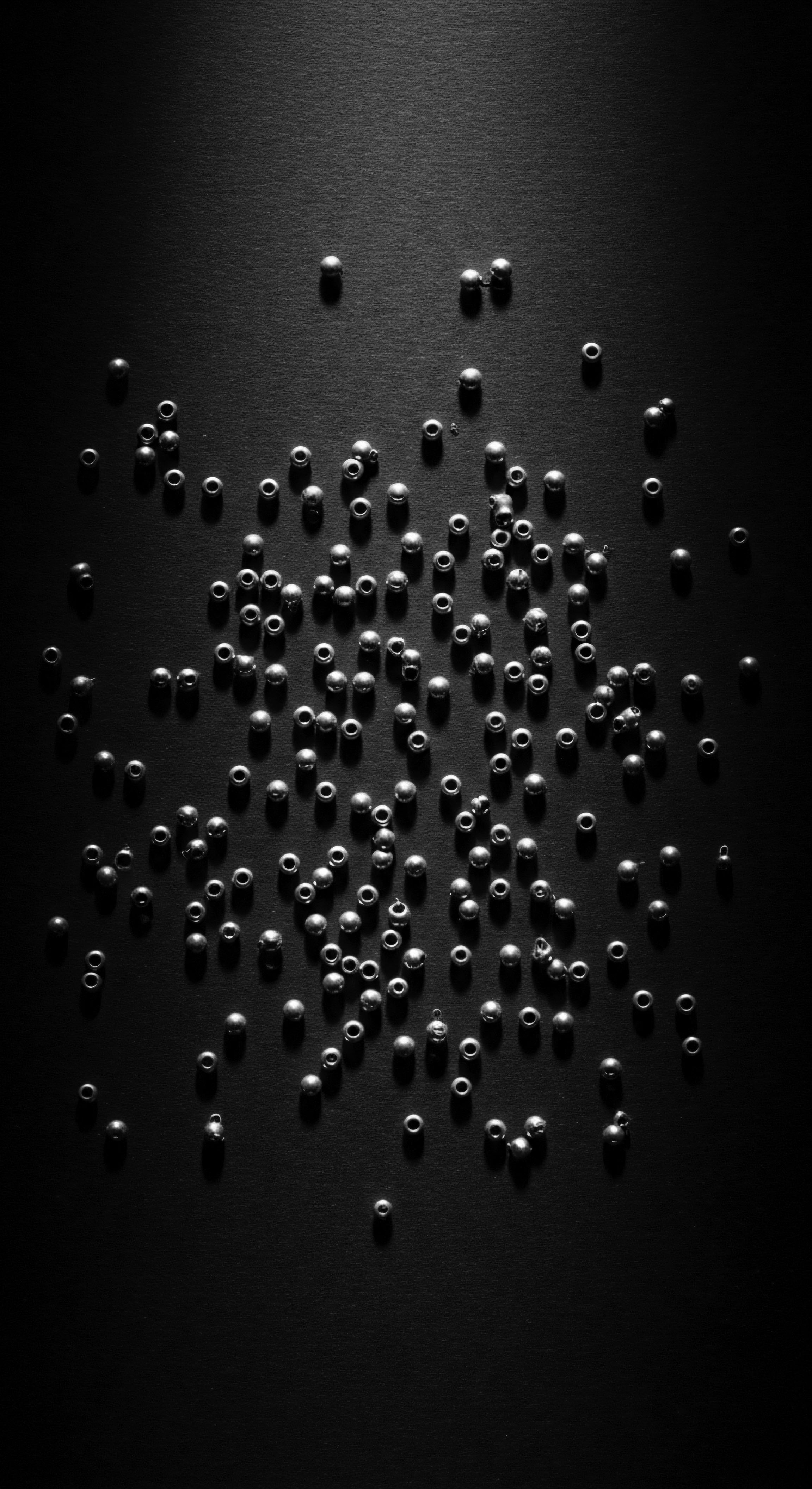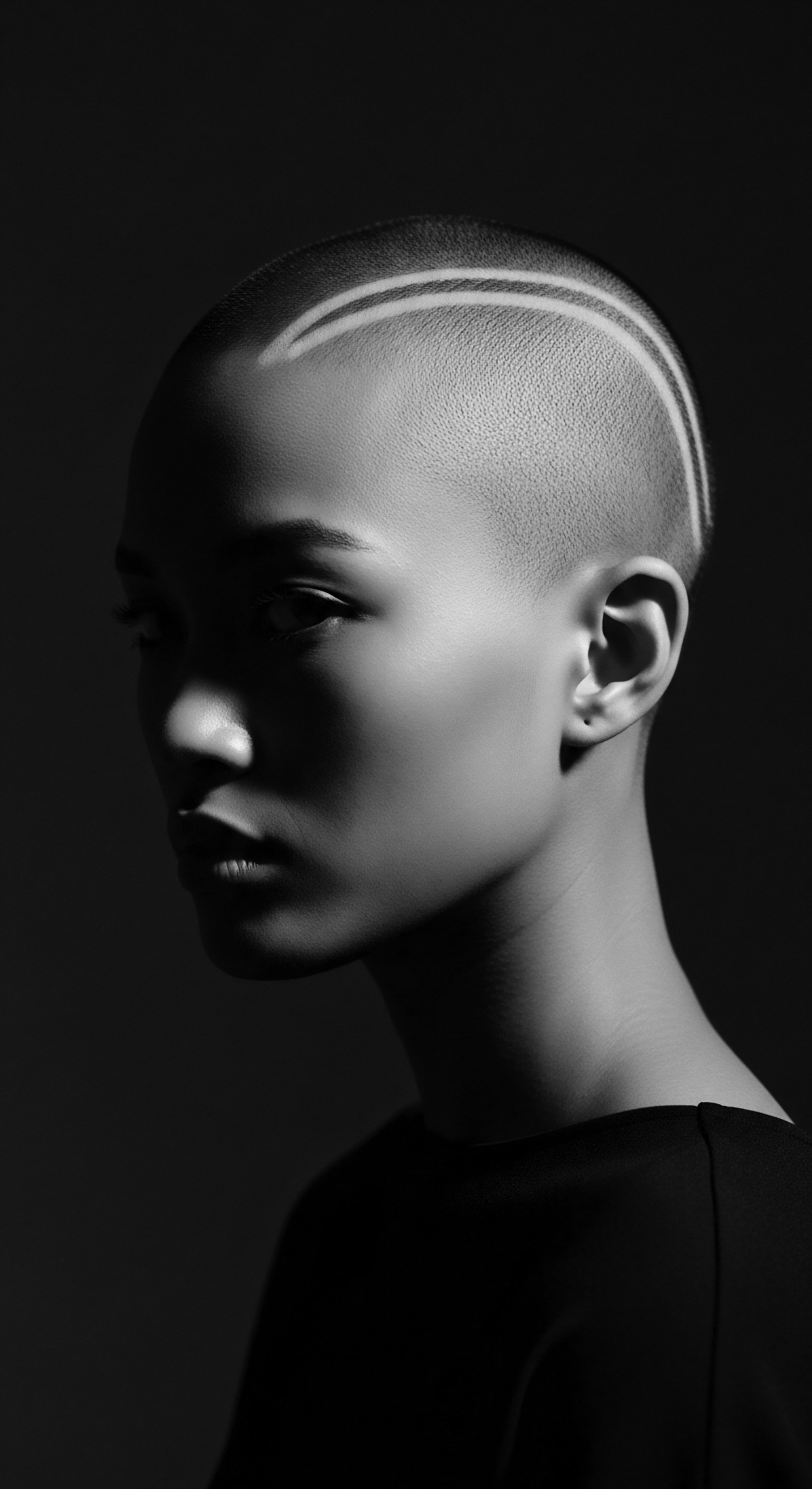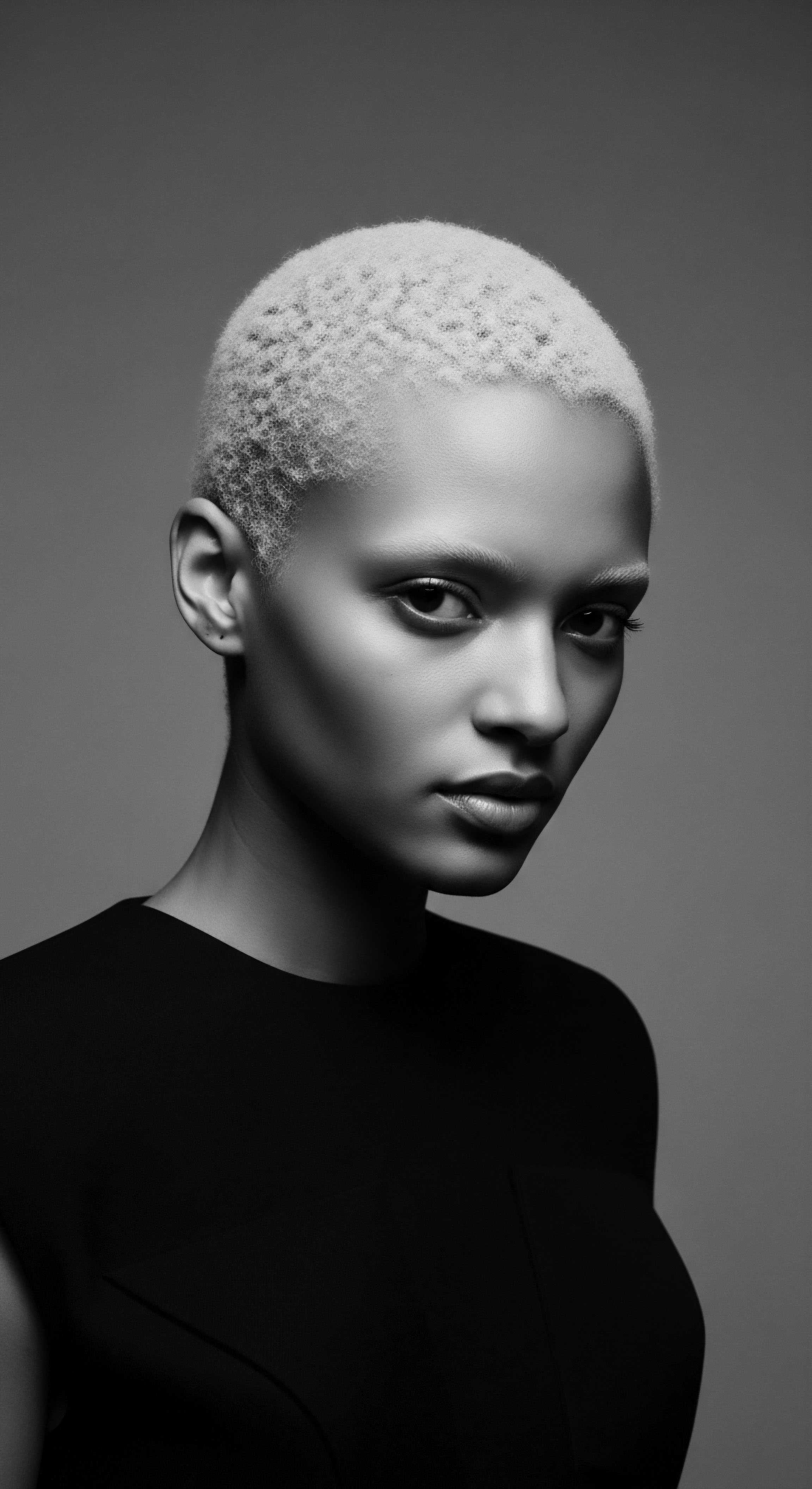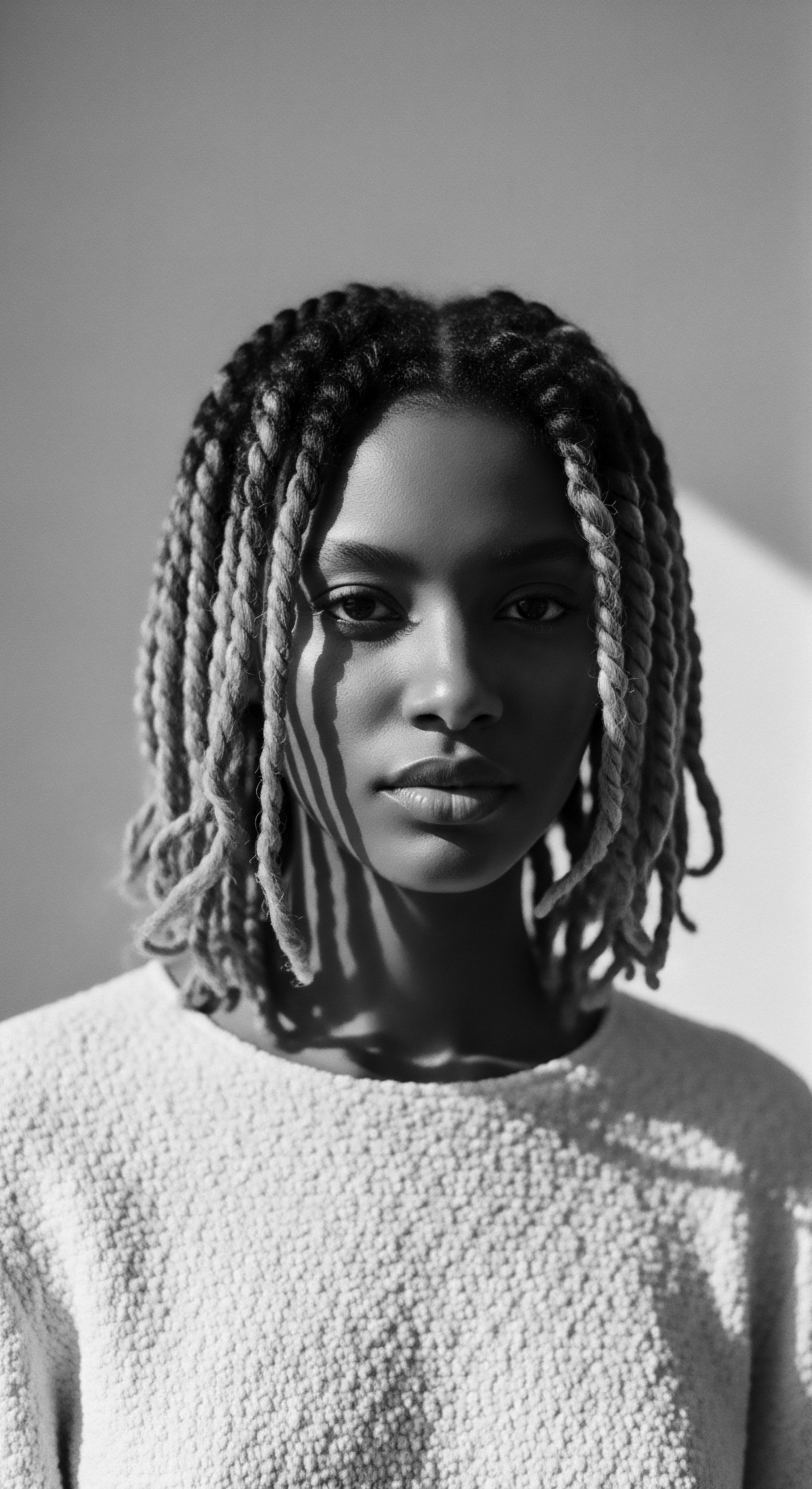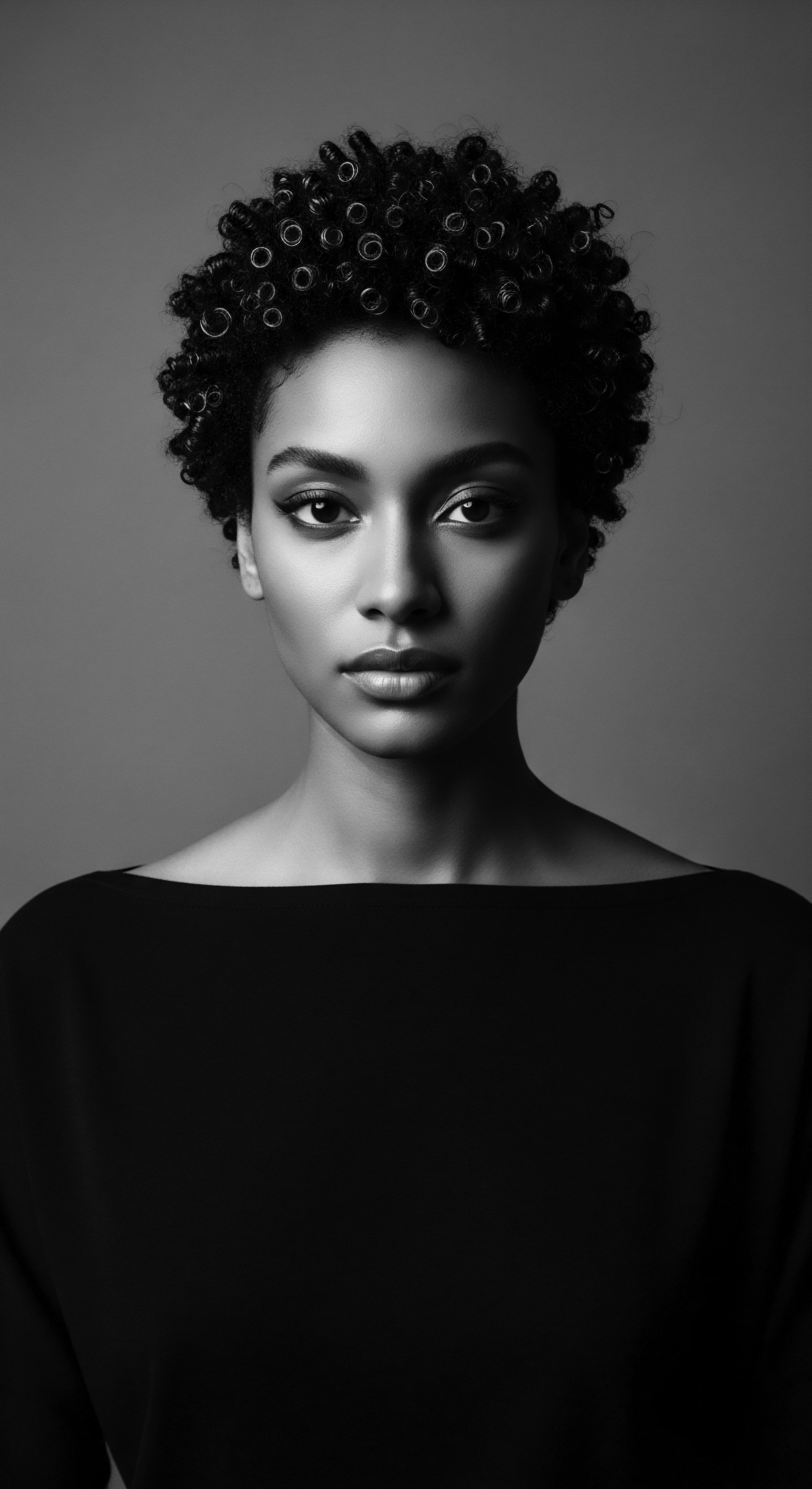
Fundamentals
The concept of Ori Divination, an interpretive tradition steeped in West African Yoruba spiritual practice, particularly within the contexts of Nigeria, Benin, and Togo, offers a profound understanding of individual destiny and self-awareness. At its most elemental, the term “Ori” translates literally to “head” in the Yoruba language. This initial explanation, however, only scratches the surface of its deeper cultural and metaphysical significance. It does not simply denote the physical head, but rather encompasses the spiritual essence residing within each person, a personal spirit that guides and profoundly influences one’s purpose, character, and life path.
This inner head, often termed Ori Inu, is considered the chosen destiny made in the spiritual realm before birth, a compact between the individual and the universe. The care given to one’s physical head, including the rituals of hair styling and adornment, is understood as a direct veneration of this invisible yet potent inner self, an act of currying favor with one’s Ori Inu to attract good fortune and alignment.
The core principle is that every human being, prior to their earthly arrival, selects their Ori from a celestial marketplace, thus choosing their fate and potential. This primordial choice establishes the blueprint for one’s existence, shaping strengths, challenges, and the unique trajectory of a lifetime. The meaning of Ori Divination thus becomes an exploration of this chosen destiny, a method for understanding and navigating the path one has set for oneself. It is a dialogue between the individual and their intrinsic spiritual guide, seeking clarity on life’s intricate currents and the best ways to flow with them.
Ori Divination serves as a profound interpretive tradition guiding individuals to understand and align with their unique, pre-ordained destiny, deeply rooted in Yoruba spiritual wisdom.
Within the rich tapestry of Yoruba cosmology, the head, as the highest point of the body, serves as a direct conduit to the divine, a vital connection point between the earthly realm and the spiritual cosmos. This perspective elevates hair, which crowns the head, to a position of extraordinary reverence. Hair, in this context, is never merely a physiological outgrowth; it is a sacred extension of Ori, a living symbol of one’s connection to ancestral memory, spiritual power, and personal identity. The way hair is treated, adorned, or styled carries significant weight, reflecting not only external beauty standards but also internal spiritual states and communal affiliations.
Ancestral practices linked to hair care are therefore not casual acts of grooming; they are rituals, each stroke and braid a conscious gesture of honor towards the Ori and the ancestral lineage it carries. The meticulous braiding patterns, the application of natural ingredients, and the symbolic adornments of hair all played roles in communicating social standing, marital status, religious devotion, and even protection from malevolent spirits. This deep heritage grounds the entire understanding of Ori Divination within the context of textured hair, recognizing it as a living archive of wisdom passed down through generations. The understanding of this practice, its purpose, and its connection to the individual’s spiritual well-being has shaped communal and personal narratives surrounding textured hair, demonstrating its profound role in cultural identity and ancestral connection.
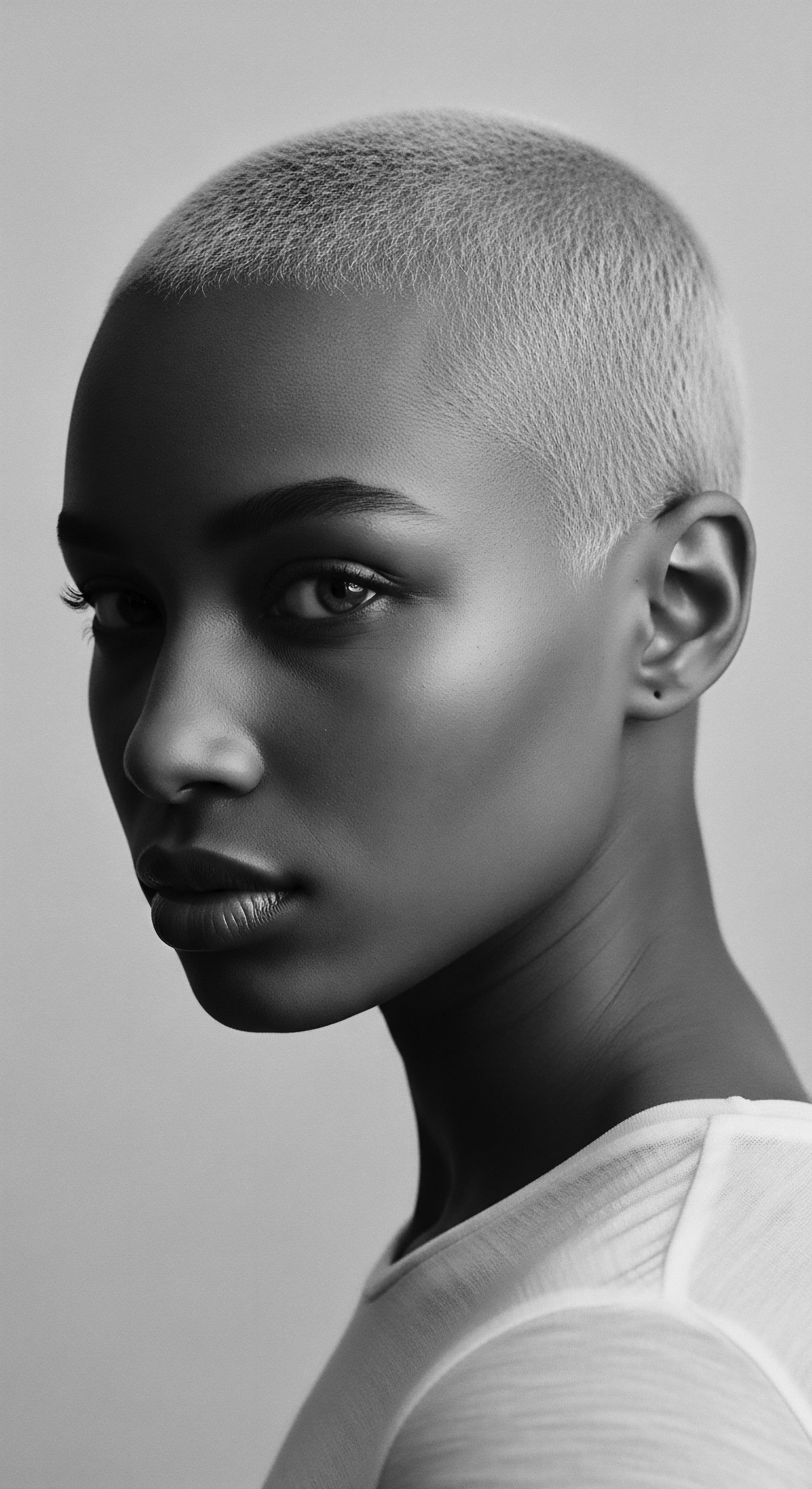
Intermediate
Moving beyond its fundamental delineation, the intermediate understanding of Ori Divination requires an apprehension of its nuanced applications and the intricate systems it engages, particularly within the sphere of textured hair heritage. This complex practice extends beyond a simple reading of future events; it is a comprehensive system of self-discovery and alignment, guiding individuals to comprehend the predispositions chosen by their Ori Inu in the celestial realm. The process often involves a divination priest, a Babalawo in the Yoruba tradition, who acts as an intermediary, interpreting the symbolic patterns that reveal the individual’s destiny and the path forward. This intricate dialogue utilizes tools like the Ifa oracle, a highly structured system with 256 Odus or poetic verses, each containing wisdom that speaks to various aspects of life, including health, relationships, and spiritual well-being.
The connection between Ori Divination and textured hair experiences becomes more pronounced when one examines the historical and cultural reverence for hair as a living extension of Ori. For ancestral communities, hair was a visible manifestation of one’s inner spiritual state and chosen destiny. Its styling was a ritual, a profound act of devotion to the inner head, a way to invite positive influences and align with one’s pre-ordained path.
The significance of hairstyles in pre-colonial West African societies was immense; they were not merely decorative but functioned as a sophisticated language, communicating a person’s social standing, marital status, religious affiliation, wealth, and even ethnic group. This deep communicative aspect of hair meant that its care was an act of personal and communal spiritual upkeep.
Intermediate insight reveals Ori Divination as a holistic process of self-discovery, where hair, as an extension of one’s spiritual Ori, serves as a profound canvas for communicating destiny and cultural identity.
Consider the meticulous crafting of various styles: cornrows, braids, and locs were not simply aesthetic choices. These styles, passed down through generations, carried traditional significance, sometimes believed to provide protection from malevolent spirits or to signify rites of passage. For instance, certain patterns might mark a young woman’s transition into puberty, marriage, or motherhood among specific tribal groups, such as the Himba women with their distinctive Ehando wigs and Ekori bonnets. The very act of caring for textured hair, from oiling with traditional butters and herbs to intricate styling, was, and in many communities remains, a sacred ritual, seen as an indirect way of honoring one’s Ori Inu and inviting good fortune.
The deep respect for ancestral knowledge, often rooted in traditional African sciences, parallels modern understandings of holistic well-being. The sustained moisture and nourishment provided by traditional hair care practices, for example, align with contemporary hair science that recognizes the structural needs of textured hair, particularly its fragility and propensity for dryness. This historical continuity showcases how traditional wisdom, understood through the lens of Ori Divination, provided practical applications for hair care that were both aesthetically pleasing and beneficial for hair health, long before modern chemistry explained the underlying mechanisms. The intersection of hair science and ancestral practice demonstrates a deep cultural and spiritual connection.
The profound importance placed on hair within Ori philosophy is further evidenced by specific cultural artifacts. The ile ori, literally meaning “house of the head,” serves as an altar for the veneration of a person’s inner Ori and destiny. These objects are often adorned with intricate hairstyles on their representations of a head, solidifying the tangible link between the inner spiritual self, one’s outer appearance, and the cultural practices surrounding hair. For instance, an ile ori might feature the àgògo hairstyle (a cockscomb-like style) to signify that its owner was a possession priest or a devotee of a specific orisha, such as Ọya.
This deep intertwining shows that hair is not merely a stylistic choice; it is a profound declaration of identity, spirituality, and destiny. The meticulous crafting of such altars and their hair representations underscores the depth of reverence for Ori and its expression through hair across various lineages.
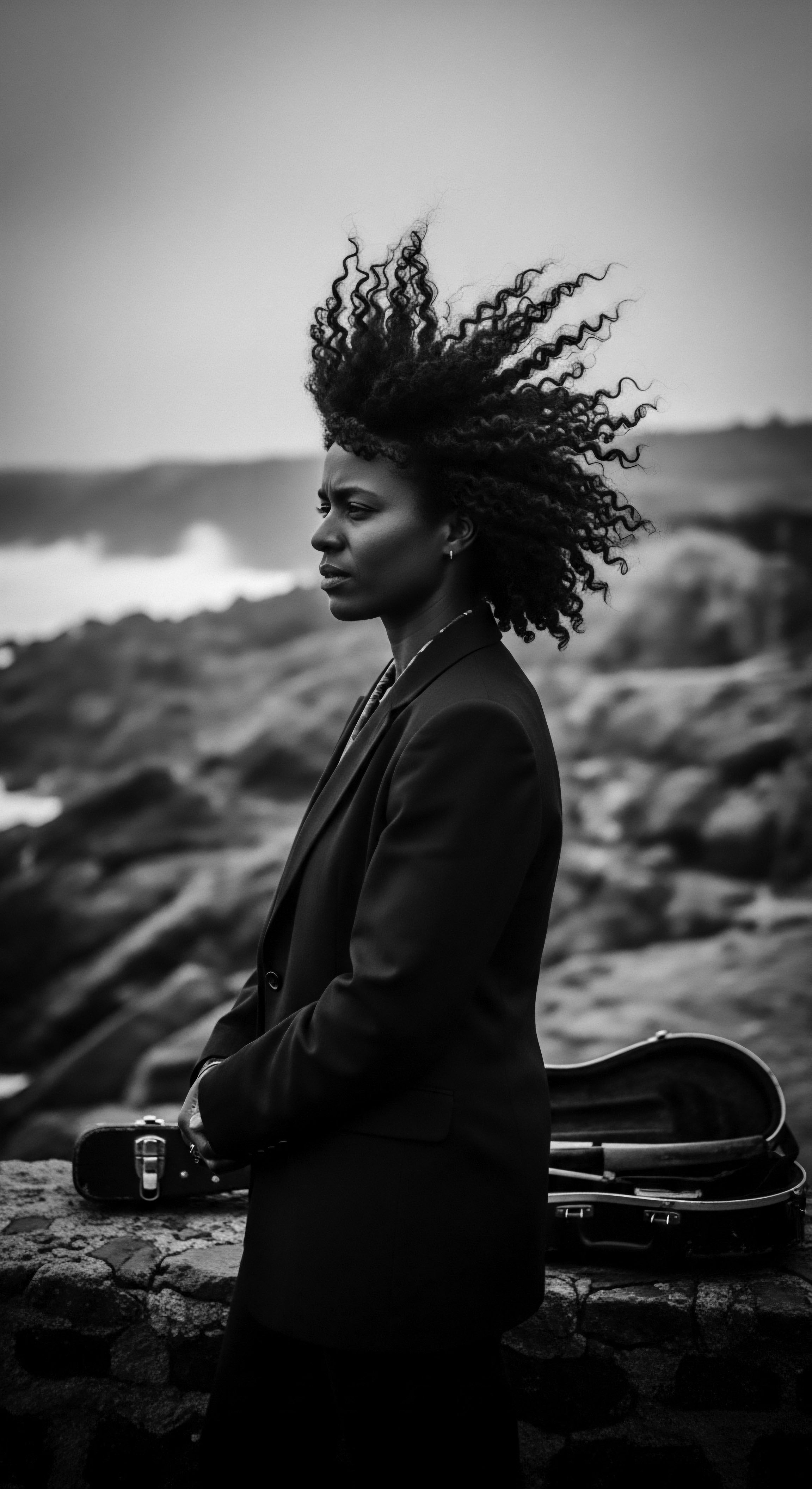
Academic
The academic investigation into Ori Divination transcends conventional definitions, presenting it as a sophisticated ethnophilosophical construct deeply embedded within the Yoruba worldview. At its apex, the meaning of Ori Divination can be clarified as the complex interpretive system employed within Yoruba Ifa cosmology to ascertain, understand, and align with an individual’s pre-ordained destiny, known as Ori Inu (inner head), a spiritual entity chosen in Orun (the spiritual realm) before earthly existence. This Ori Inu is considered the personal Orisa (deity), a fragment of the Supreme Being Olodumare ‘s enabling power ( ase ), directly responsible for an individual’s success or challenges in the physical world. The Yoruba adage, “Ori lo da ni, enikan o ‘ d’Ori o” (“It is the Head that created us; nobody created the Head”) underscores the primordial and self-determined aspect of Ori.
This philosophical positioning of Ori as both the physical head and the metaphysical carrier of destiny establishes a critical intersection where corporeal being meets spiritual trajectory. The head, physically the highest point of the body and the seat of consciousness, becomes a symbolic microcosm of the macrocosmic order. The rituals associated with Ori Divination are not passive readings of fate, but active engagements designed to reinforce the positive aspects of one’s chosen Ori and mitigate potential adversities. This dynamic interaction finds its practical manifestation in the intricate care and styling of textured hair, which, from an academic perspective, represents a living archive of applied cosmology and ancestral science.
The scholarly literature on Ifa divination, the primary methodology for Ori Divination, details its complex system of Odus (literary corpuses or chapters), each containing hundreds of verses ( ese Ifa ) that offer guidance and ethical injunctions. The Babalawo, or Ifa priest, through the manipulation of sixteen palm nuts or the casting of an opon Ifa (divination chain), generates specific Odu patterns. The interpretation of these patterns is not a simple prediction; it is an elucidation of the Ori ‘s narrative, revealing the archetypal forces ( Orisa ) and ancestral energies at play within an individual’s life. This interpretation often advises on specific offerings, rituals, or behavioral adjustments, many of which historically involved the grooming and adornment of hair as a central component of spiritual engagement.
A powerful instance illustrating the deep historical and spiritual meaning of Ori Divination in connection with textured hair heritage is found in the veneration of the ile ori, or “house of the head.” This sacred object is not merely an artistic rendering; it is a tangible expression of Ori Inu, an altar dedicated to the inner head and one’s destiny. These ile ori are frequently adorned with representations of specific hairstyles that carry profound symbolic meaning, linking the individual’s spiritual path to their physical presentation. For example, some ile ori feature the àgògo hairstyle, a distinctive cockscomb-like style. This particular hairstyle, when depicted on an ile ori, is understood to signify that the owner was a possession priest or a dedicated worshiper of Ọya , the orisha of wind and storms, whose devotees often keep their hair unshorn and style it in specific ceremonial ways (Drewal, 2017, p.
143). This practice, rigorously documented in studies of Yoruba sacred arts, provides compelling evidence that hair is not a superficial aspect of identity; it is a deeply coded language that expresses spiritual allegiance, societal role, and the very essence of one’s chosen destiny, all interpreted through the lens of Ori Divination. This example stands as a testament to the fact that hair care and styling within these communities are not divorced from the spiritual realm but are, in fact, integral to one’s spiritual hygiene and connection to Ori.
Academic analyses reveal Ori Divination as an intricate ethnophilosophical system where the physical expression of textured hair through symbolic styling is an essential ritual act of honoring one’s pre-ordained destiny and connecting with ancestral and divine energies.
Furthermore, the academic lens allows for an examination of the socio-cultural impact of this spiritual system on the collective Black and mixed-race hair experience, particularly following the transatlantic slave trade. The forcible stripping of traditional hairstyles and the imposition of Eurocentric beauty standards by colonizers aimed to sever the spiritual and cultural ties embodied in textured hair. Yet, the enduring power of Ori Divination and its underlying philosophy contributed to the resilience of Black hair traditions, inspiring movements that reclaimed ancestral hairstyles as symbols of pride, resistance, and self-acceptance. The natural hair movement, for instance, can be viewed as a modern manifestation of this deep-seated desire to align the outer self (hair) with the inner Ori, rejecting imposed norms in favor of authenticity and heritage.
The meticulous attention paid to textured hair, historically involving specific herbs, oils, and styling techniques, aligns with contemporary scientific understandings of hair biology, particularly the unique structural characteristics of highly coiled strands, which are prone to dryness and breakage. Academic studies in dermatological and cosmetic science are increasingly validating ancestral hair care practices, demonstrating that traditional knowledge, often informed by spiritual principles of Ori and well-being, provided effective solutions for maintaining hair integrity. This confluence of ancestral wisdom and modern scientific inquiry offers a holistic perspective on textured hair care, illustrating that practices rooted in spiritual understanding were, in essence, early forms of applied biological science. The interpretation of Ori Divination therefore extends into the tangible realm of hair health, highlighting its enduring and practical meaning.
The Yoruba concept of Ori also possesses implications for individual agency and collective identity. While destiny ( ipin ) is chosen, the quality of Ori can be influenced by iwa pele (good character) and consistent veneration. This suggests a dynamic interplay between predestination and free will, where an individual’s actions and spiritual diligence can shape their life experience in alignment with their chosen Ori.
For the diaspora, this understanding provides a framework for re-establishing connections to ancestral wisdom, for understanding the significance of hair as a marker of identity, and for navigating the complexities of post-colonial beauty standards. The academic discourse on Ori Divination thus provides a powerful lens through which to comprehend the enduring strength and adaptability of Black and mixed-race hair heritage, transforming it from a mere physical trait into a profound philosophical statement of self-determination and cultural continuity.
- Ancestral Knowledge Validation ❉ Modern trichology often finds scientific backing for traditional practices like oiling and protective styling, validating long-held ancestral wisdom in textured hair care.
- Symbolic Communication through Hair ❉ The intricate patterns and adornments in historical African hairstyles functioned as a non-verbal language, communicating status, lineage, and spiritual devotion, a visual representation of one’s Ori ‘s narrative.
- Resilience in the Diaspora ❉ Despite attempts during enslavement to strip cultural identity by altering hair, the philosophy of Ori helped maintain hair as a site of resistance and cultural continuity, fostering the survival of traditional practices and inspiring later natural hair movements.
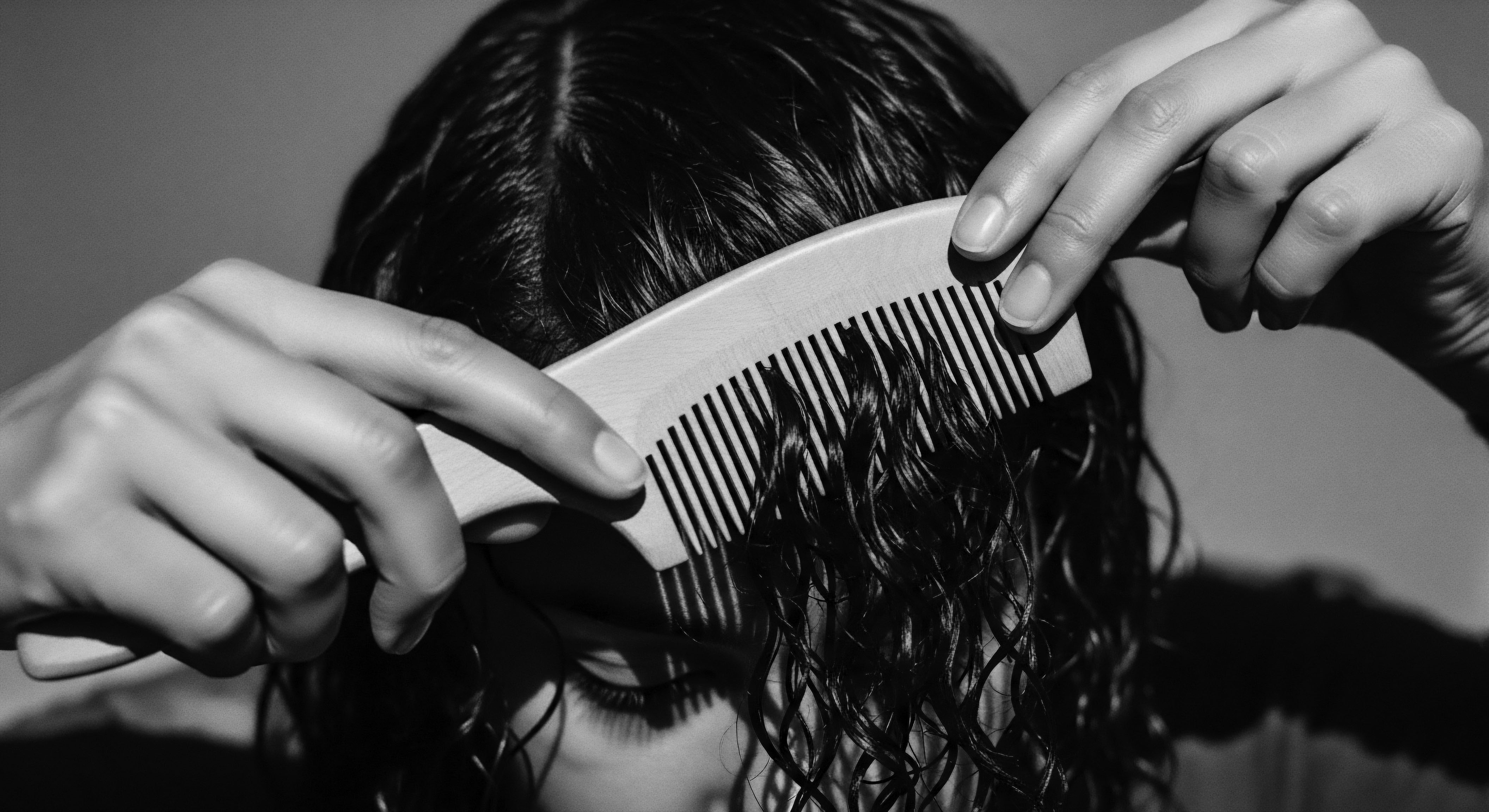
Reflection on the Heritage of Ori Divination
As we conclude this exploration, the enduring significance of Ori Divination, particularly within the interwoven narratives of textured hair, reverberates with profound resonance. The journey from elemental biology and ancient practices, termed “Echoes from the Source,” has revealed that the reverence for hair is not a superficial cultural footnote, but a cornerstone of identity, self-discovery, and spiritual alignment. The Yoruba concept of Ori, the inner head of destiny, offers a timeless framework for understanding the deep connection between one’s chosen path and the physical manifestation of one’s being, prominently displayed through hair. This intricate philosophical system has shaped not only individual lives but also the collective conscience of communities across the African diaspora, demonstrating how ancestral wisdom remains vibrantly alive, adapting and enduring through generations.
The transition through “The Tender Thread” of living traditions of care and community illuminates the sacred artistry of hair maintenance. Every braid, every oiling ritual, every adornment historically served as a conscious act of tending to the Ori and honoring ancestral legacies. These practices were never solely about aesthetics; they were acts of spiritual hygiene, communal bonding, and self-expression that connected individuals to a larger spiritual cosmos.
The persistence of these rituals, often reinterpreted in contemporary contexts, stands as a testament to the enduring power of heritage and the wisdom embedded in the very act of nurturing textured hair. It reminds us that our hair is a continuous conversation with our past, a living legacy we carry.
Our understanding culminates in “The Unbound Helix,” where Ori Divination assumes its role in voicing identity and shaping futures. In a world that often seeks to standardize beauty, the ancestral wisdom of Ori provides a powerful counter-narrative, asserting that each textured strand holds a unique story, a connection to a specific destiny. The historical example of the ile ori with its sculpted hairstyles, embodying an individual’s spiritual allegiance and chosen path, serves as a poignant reminder of this profound truth. This object is a palpable link to the historical moment where hair was unequivocally understood as a spiritual medium, directly tied to one’s fate and the divine.
The ongoing journey of textured hair, from the resilience cultivated through generations of adversity to the vibrant self-acceptance movements of today, mirrors the dynamic wisdom of Ori Divination. It suggests that by understanding and honoring the intrinsic meaning of our hair, we not only connect with our deepest heritage but also consciously sculpt a future rooted in authenticity and ancestral strength. This knowledge offers a path toward holistic well-being, where external appearance and internal spirit are seamlessly aligned, creating a harmonious existence.
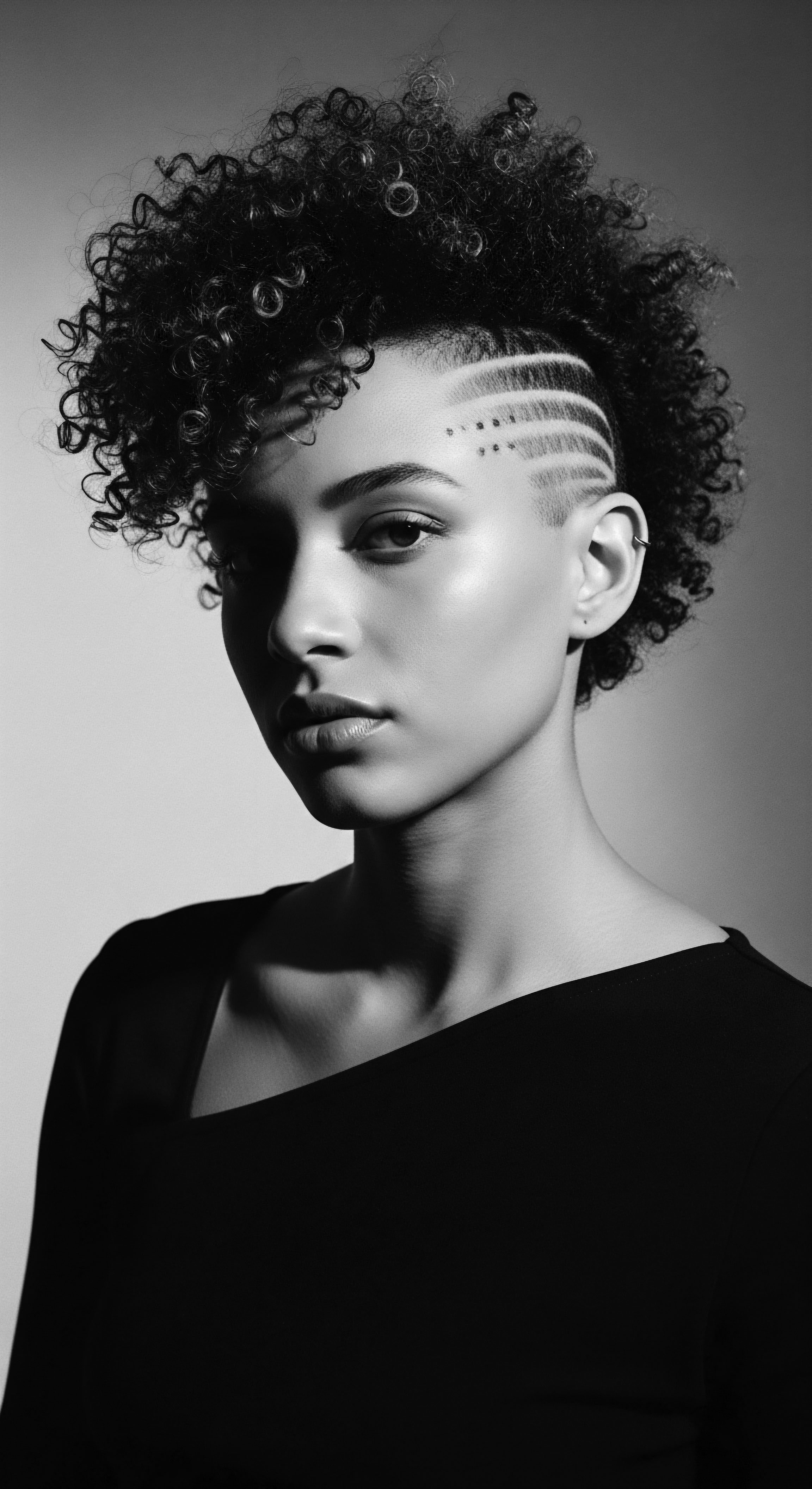
References
- Drewal, Henry John. The House Was Too Small: Yorùbá Sacred Arts from Africa and Beyond. MIT Press, 2017.
- Bascom, William. Sixteen Cowries: Yoruba Divination from Africa to the New World. Indiana University Press, 1980.
- Ekanola, David. “The Concept of Ori in Traditional Yoruba Thought System: A Humean Critique.” Journal of Pan African Studies, vol. 1, no. 8, 2007, pp. 28-40.
- Barnes, Sandra T. Africa’s Ogun: Old World and New. Indiana University Press, 1997.
- Tharps, Lori L. and Ayana D. Byrd. Hair Story: Untangling the Roots of Black Hair in America. St. Martin’s Press, 2001.
- Afolabi, Adebayo. “Hairdressing and Hairstyles in Yorubaland: History, Nature, Dynamics and Significance.” Journal of African Cultural Studies, vol. 35, no. 1, 2023, pp. 1-15.

